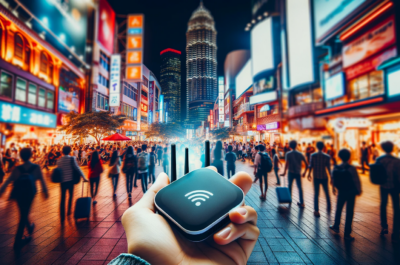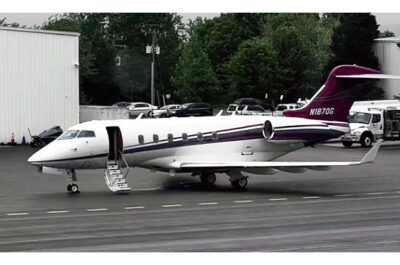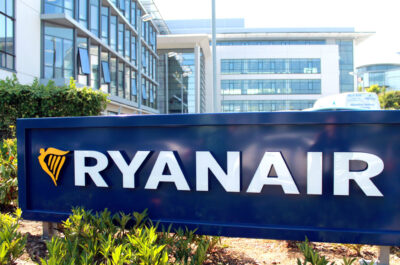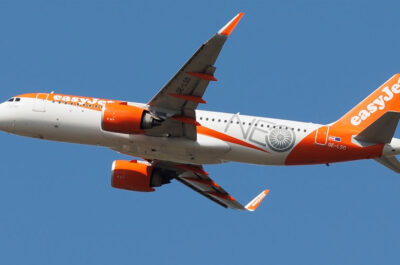While 2021 is unlikely to resemble any recent year in history, it may be recalled as one in which life slowly began to return to normal after one of the worst pandemics of the modern age.
When most of us don’t even consider travelling to the office, going on a business trip feels about as distant as taking the red-eye to Mars.
With the recent pandemic hit, business travel has ground to a halt. We’ve moved important client meetings to Skype or Zoom, allowed our passports to gather dust, and learned how to interact with colleagues around the world without jumping on a plane.
But is this the beginning of a new normal for business travel? We know by far that after a difficult 2020, top business leaders are optimistic that this year will be one of innovation, renewal, and recovery. While 2021 is unlikely to resemble any recent year in history, it may be recalled as one in which life slowly began to return to normal after one of the worst pandemics of the modern age.
This year, the global community will continue to see considerable changes in almost every sector. Although no one has all of the answers or a crystal ball, here’s what you should expect:
The speed and direction of change
We’ve witnessed a lot of changes to the way we travel, particularly in the booking process, in a relatively short period, including the introduction of digital platforms and technologies. As you well know, travel is an ever-changing industry; just when we thought would become a constant-state, something new comes around the corner.
That rate of change is like to continue at peace, and we’ll also see some changes in focus. Business people expect this rate of change to continue, but it will manifest itself in different ways. For instance, we’ve seen a lot of recent focus around AI and traveler experience, and while that matures, other less developed areas will get a new focus.
Technology, on the other hand, will make travel seamless. As travel platforms evolve and move more into the sphere of modern computing, we should expect a more integrated travel experience end-to-end.
● Seamless transit
Travel experts dare to imagine a time when technology will better manage transitions in travel itineraries based on factors outside the travelers’ control and all without stressing out.
For instance, a weather-induced delay could automatically update your car pickup, rebook your next available flight, and provide you a free lounge pass at your linking airport due to your arrival delay- all automatically transferred to you without giving it a thought. That’s where we’re likely to get, and it’s just a matter of time before we obtain that.
● Simplified payments
Goodbye, old zip lock bag of receipts for expense reconciliation – now the virtual payment process is expected to streamline the whole travel expense process. For example, your business pre-pays your flight; a pre-allocated virtual card available for means allocated for the employees, based on trip duration, location, for instance, New Jersey might demand a higher per diem than Lisbon, and a digital payment available via Google Play or Apple is on your mobile for hotel incidentals.
● Tailored flight options
Custom flight options will allow business travelers to book options based on their needs. Need only a day trip? Only pay for onboard WIFI and the seat? Planning a longer international journey? Don’t forget to include your first bag plus meals.
Business travelers will also have a simplified way to share payments with their company; the company can pay their share as offered by their travel policy, for instance, premium economy, and the passenger can choose to upgrade themselves to something better at their own expense, be it via redemption of frequent flier points or personal credit card.
All of this could be possible in a single experience and accessible within the lifecycle of the trip. That said, the business traveler could choose it upfront when the ticket is booked a month out from travel, or they could decide a day before the flight when they’re too exhausted and want to lie flat on the flight.
What should travel managers be doing in the meantime?
If this “wait and see” period got you unprepared, here are a few things you can do to prepare for the unforeseeable changes ahead.
1. Review existing travel policies: You can start by looking at what you have in place to identify any alterations regarding international approvals, overall travel approvals, and any booking that happens outside your system. Consider travel restrictions to certain locations or extra layers or steps of approval to ensure that travel is necessary, as well as the risk level of the state you’re flying in.
2. Simplify your process: As businesses slash budgets, it becomes even more important than ever to review your operational efficiency and find out solutions to streamline your travel process. How can you improve your employee productivity and get more visibility into the cost? If you add your business vehicle to all this, does your car insurance covers emergency travel expenses? Although no one knows precisely what will happen next, by taking your time to reassess your policies, agreements, procedures, and most importantly, your plan for keeping you and your travelers safe, your company will be ready for whatever the new normalcy of business travel looks in a post-pandemic world.
3. Secure your travel refunds: Make sure you look at any tickets or travels that aren’t booked for the two or three months ahead. Learn which trips are now canceled, so you can secure credits or refunds. Also, consider following those trips that are still under consideration in case the flight or the trip is canceled.
4. Update travel profiles: Review your complete travel profile and current contact details for all your voyagers, and plan for contacting them in case they travel to a state that has a sudden outbreak or other unsafe conditions.
5. Revisit your supplier agreements: Look at the volume-based discounts you have negotiated with your hotels and air travel companies and identify what needs to be renegotiated. If a hotel near your headquarters has a shout down or an airline eliminates frequently traveled routes, find out how they will resolve that.
Photo by Artem Beliaikin from Pexels


























































































































































































